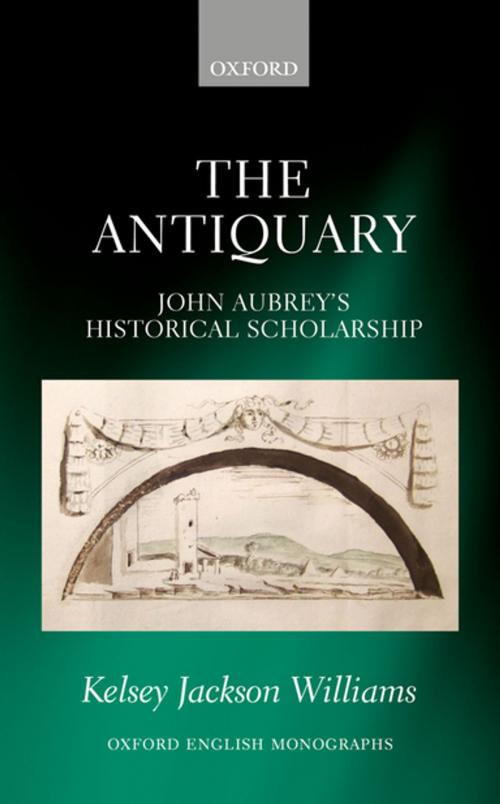The Antiquary
John Aubrey's Historical Scholarship
Fiction & Literature, Literary Theory & Criticism, Nonfiction, Social & Cultural Studies, Social Science, History| Author: | Kelsey Jackson Williams | ISBN: | 9780191087134 |
| Publisher: | OUP Oxford | Publication: | July 28, 2016 |
| Imprint: | OUP Oxford | Language: | English |
| Author: | Kelsey Jackson Williams |
| ISBN: | 9780191087134 |
| Publisher: | OUP Oxford |
| Publication: | July 28, 2016 |
| Imprint: | OUP Oxford |
| Language: | English |
John Aubrey (1626-1697), antiquary, natural philosopher, and virtuoso, is best-remembered today for his Brief Lives, biographies of his contemporaries filled with luminous detail which have been mined for anecdotes by generations of scholars. However, Aubrey was much more than merely the hand behind an invaluable source of biographical material; he was also the author of thousands of pages of manuscript notebooks covering everything from the origins of Stonehenge to the evolution of folklore. Kelsey Jackson Williams explores these manuscripts in full for the first time and in doing so illuminates the intricacies of Aubrey's investigations into Britain's past. The Antiquary is both a major new study of an important early modern writer and a significant intervention in the developing historiography of antiquarianism. It discusses the key aspects of Aubrey's work in a series of linked chapters on archaeology, architecture, biography, folklore, and philology, concluding with a revisionist interpretation of Aubrey's antiquarian writings. While covering a wide variety of scholarly territory, it remains rooted in the common thread of Aubrey's own intellectual development and the continual interaction between his texts as he studied, discovered, revised, and rewrote them across four decades. Its conclusions not only substantially reshape our understanding of Aubrey and his works, but also provide new understandings of the methodologies, ambitions, and achievements of antiquarianism across early modern Europe.
John Aubrey (1626-1697), antiquary, natural philosopher, and virtuoso, is best-remembered today for his Brief Lives, biographies of his contemporaries filled with luminous detail which have been mined for anecdotes by generations of scholars. However, Aubrey was much more than merely the hand behind an invaluable source of biographical material; he was also the author of thousands of pages of manuscript notebooks covering everything from the origins of Stonehenge to the evolution of folklore. Kelsey Jackson Williams explores these manuscripts in full for the first time and in doing so illuminates the intricacies of Aubrey's investigations into Britain's past. The Antiquary is both a major new study of an important early modern writer and a significant intervention in the developing historiography of antiquarianism. It discusses the key aspects of Aubrey's work in a series of linked chapters on archaeology, architecture, biography, folklore, and philology, concluding with a revisionist interpretation of Aubrey's antiquarian writings. While covering a wide variety of scholarly territory, it remains rooted in the common thread of Aubrey's own intellectual development and the continual interaction between his texts as he studied, discovered, revised, and rewrote them across four decades. Its conclusions not only substantially reshape our understanding of Aubrey and his works, but also provide new understandings of the methodologies, ambitions, and achievements of antiquarianism across early modern Europe.















